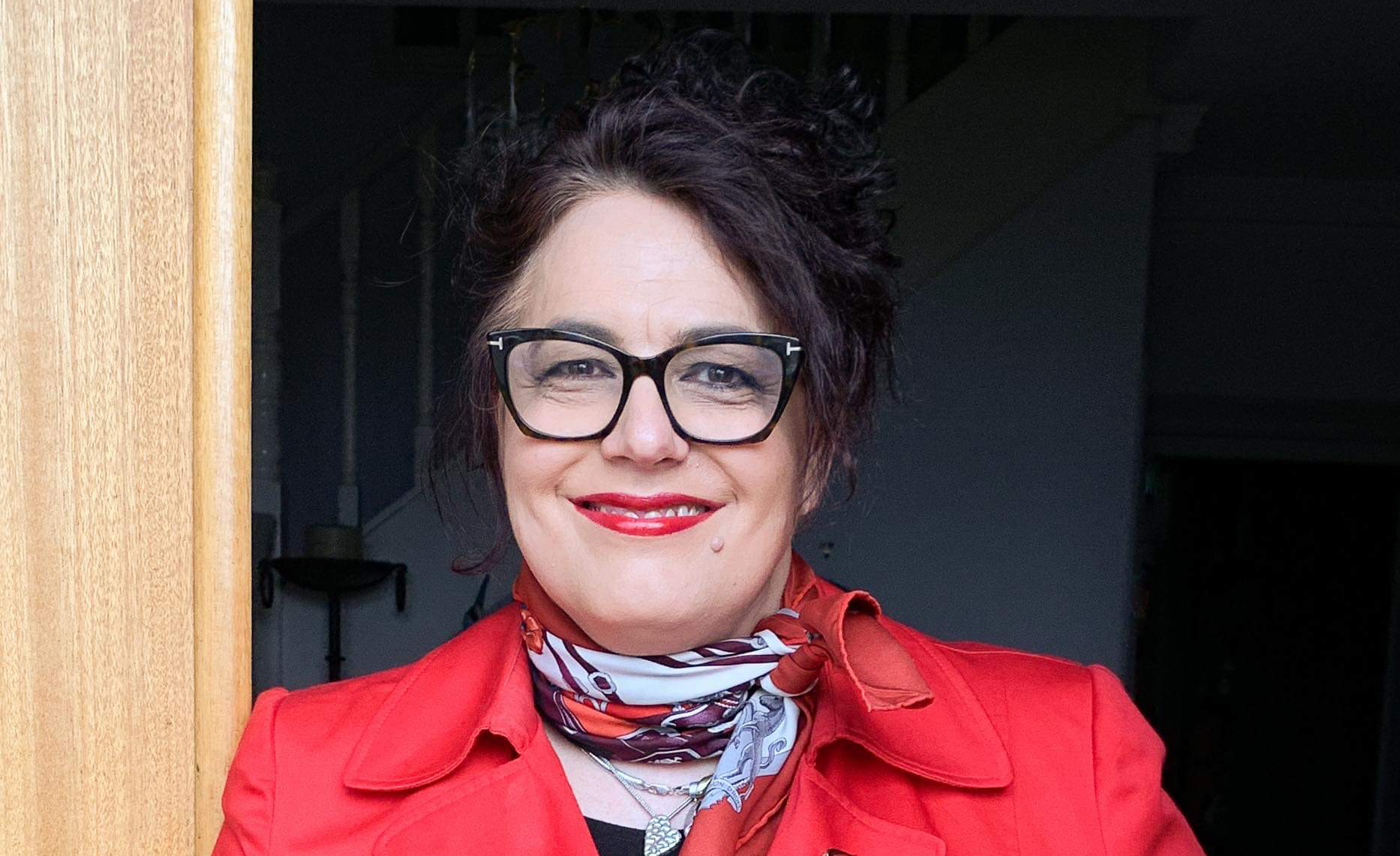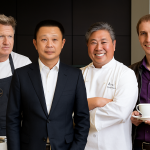Felicity Gerry has scaled up the hard way, from working in riding stables, to the top of the international legal arena.
Can you tell me a little bit about your early life and education?
My early life and education were defined by women. I was born in Dagenham, home of the women who walked out for equal pay, and when I was 7, we moved to Nottingham, a city of two-thirds women due to the lace industry. In Essex, I was schooled by nuns Sister Scholastica and scary Sister Frances on two sticks with horn-rimmed glasses. In Nottingham, I went to a progressive primary school where the female Head was cool and inclusive. In secondary school, Mrs. Purewal, who insisted on being carried in even when she was dying of cancer, pushed me ahead in maths. It didn’t stop me from being bullied. Thirty years later, I received an email from a retiring police officer who apologised for bullying me at school. She recalled I would always shout back. I suppose that has defined my career – I have always been the new girl who would never stay silent.
Having left school and worked in a horse riding stables and, latterly a bar in Tenerife, at that point in your life, were there any career goals, or was it living one day to the next?
I started helping out at a riding school when I was 12. It was a great escape from my parents’ divorce. I don’t really know what happened at school, but I went from being pushed ahead to lagging behind and the stables seemed like more fun, so by the time I was 15, I pretty much didn’t go to school, and I left with only 5 ‘O’ Levels. I suspect this later affected my applications to become a barrister, as I made 77 applications and only received 12 replies. Going to Tenerife was an opportunity to reassess my life and I came back determined to achieve. I enrolled in further education college, then studied law at University and decided that dressing up in black and going to court every day for an argument was the future I had been looking for, so I became a barrister. It was the closest to being the Wicked Witch of the West – like Elphaba, carving my own noisy niche.
Please tell us about the moment you returned to the UK to finish your studies.
When watching the ex-pat Brits performing a Christmas pantomime in the only venue with a stage which was where men would go to buy sex – a memory that has fuelled my work on reproductive rights, human trafficking, and decriminalising sex work. I knew there was a world elsewhere.
What gave you the incentive to study law?
My father made the ink to print newspapers and my Godfather worked on the Daily Mail and the Socialist Worker. I thought I was going to be a journalist and law would be a sound foundation. As I progressed through University, I was asked whether I would become a solicitor or a barrister, so I tried some work experience. Being a solicitor required accounting for time every six minutes, that was not for me as I can spend hours thinking and that wouldn’t look good on a billing sheet. Several mini-pupillages later, taking me to the House of Lords on a food labelling case and the Court of Appeal on gross negligence manslaughter, I knew that the intellectual rigor and advocacy of the Bar would suit me.
Going to Tenerife was an opportunity to reassess my life and I came back determined to achieve.
I am sad that the last 30 years has seen the decline of legal reasoning in criminal law in the senior courts of England and Wales, but I am proud of the contribution I have brought, particularly in identifying the legal errors in joint enterprise law and the ignorance of Constitutional protections for Shamima Begum. This has increased with the comparative opportunities I have from my 17th floor corner office in Melbourne.
As a female criminal barrister up against Old School Barristers, how did you navigate the early years?
It was quite a surprise to discover the shouty judges and adversarial opponents, but I suppose I gave as good as I got. I had a great start from a defence solicitor in the youth court, and I was often instructed in complex prosecution cases involving serious sexual offending at a time when it was very difficult to get cases involving female victims prosecuted at all. I did my best to carve myself a role as an expert. On top of my court work, I had a column in a legal magazine, and I co-wrote The Sexual Offences Handbook, which contains all the laws on sexual offending since 1952. I now specialise in Murder, Terrorism, War Crimes and Modern Slavery law and I have a Ph.D. on trafficked women who commit crime.
Despite being female, despite not attending an elite public school or leg ups from the Old Boys Network, you progressed through the ranks. What has been your strategy for scaling up?
To be honest, I have had support from some old boys and girls – the application for Silk is 60 pages long and references are needed from senior members of the legal profession so I must have been doing something right and I am grateful to all my supporters, especially senior women silks and decent scholarly judges on the bench.
My strategy is to identify my dream job and write my CV as if I am applying tomorrow, which identifies my relevant skills and allows me to work to fill the gaps. More than once I have faced blocks in my career but, being strategic about where I want to go usually allows me to circumvent them, although sometimes it takes longer than it should.
[ymal]
I watched some mediocre men work in international criminal law long before I was given the opportunity, but I am there now, currently on a wonderfully diverse team for Mr Al Hassan in the International Criminal Court.
Making a then Queen’s Counsel now King’s Counsel must have been a proud moment. At this point did you feel you had achieved what you set out to do and reached the pinnacle of your career?
Oddly not. At that point, I had lost a case called R v Jogee in the Court of Appeal. The judges had said, “there’s nothing in this”. Knowing that hundreds, if not thousands, of people had been sent to prison on the wrong law, I thought, if there’s nothing in this, I am not sure I want to do this anymore. My family had an opportunity to go to Australia for a year and I decided to teach in a university which I continue to this day. Through a series of fortunate events, I met an Australian judge who encouraged me, and I decided to take that case to the UK Supreme Court. There was something in it and their Lordships admitted the law had gone wrong for 30 years. I still campaign for the release of those prisoners. Having thought the pinnacle was defending a murder trial at the Old Bailey, which I have now done several times, I have now lived in Australia for ten years, and I now work internationally, which is rewarding.
Scaling up further as an international barrister was another big step. What gave you the confidence to go global and what have been the major issues to trying cases across continents?
My confidence comes from what I call my “informed bloody-mindedness” from incessant reading as well as the support from my interesting and marvellous family, who have supported my every career move. Major issues have occurred when I have moved chambers away from those who are not supportive, now finding colleagues and clerks in England and Australia who understand my international practice and support me to work globally. Sometimes the Bar is like school and the bullies are awful, but you must rise above it and move on, creating your own pathway.
What do you want to achieve in the next few years?
I have enjoyed teaching, writing human rights reports and submissions to governments on law reform and would like those opportunities to continue. After my experience assisting the lawyers for Mary Jane Veloso, a Filipino woman on death row in Indonesia, I would like to secure the release of trafficked women in prison, especially those facing the death penalty and to continue law reform for women in prison. I would like to secure reparations for historic slavery of the Cook Islanders I have represented and changes in the law on complicity across the Commonwealth affected by the errors identified in Jogee. I am not sure how long this will take but I will continue to try. I am keen to contribute to the development of International criminal law and practice and am now on the ICCBA Training Committee and the IBA Criminal Law Committee.
Finally, what three leadership tips would you give young CEO’s as they wish to rise through the ranks in their industry, as you have done so successfully?
- Take responsibility, become an expert, read, and learn. All of which includes answering your correspondence: It will bring progress for you and for others.
- Mentor those at the start of their careers, especially those who did not have an elite education. Seeing my students and juniors achieve are my most fulfilling moments. One of my juniors became a KC last month.
- Give women opportunities. A diverse group makes for better outcomes and women can often bring a broader perspective to your decision making.
Take responsibility, become an expert, read, and learn. All of which includes answering your correspondence: It will bring progress for you and for others.











